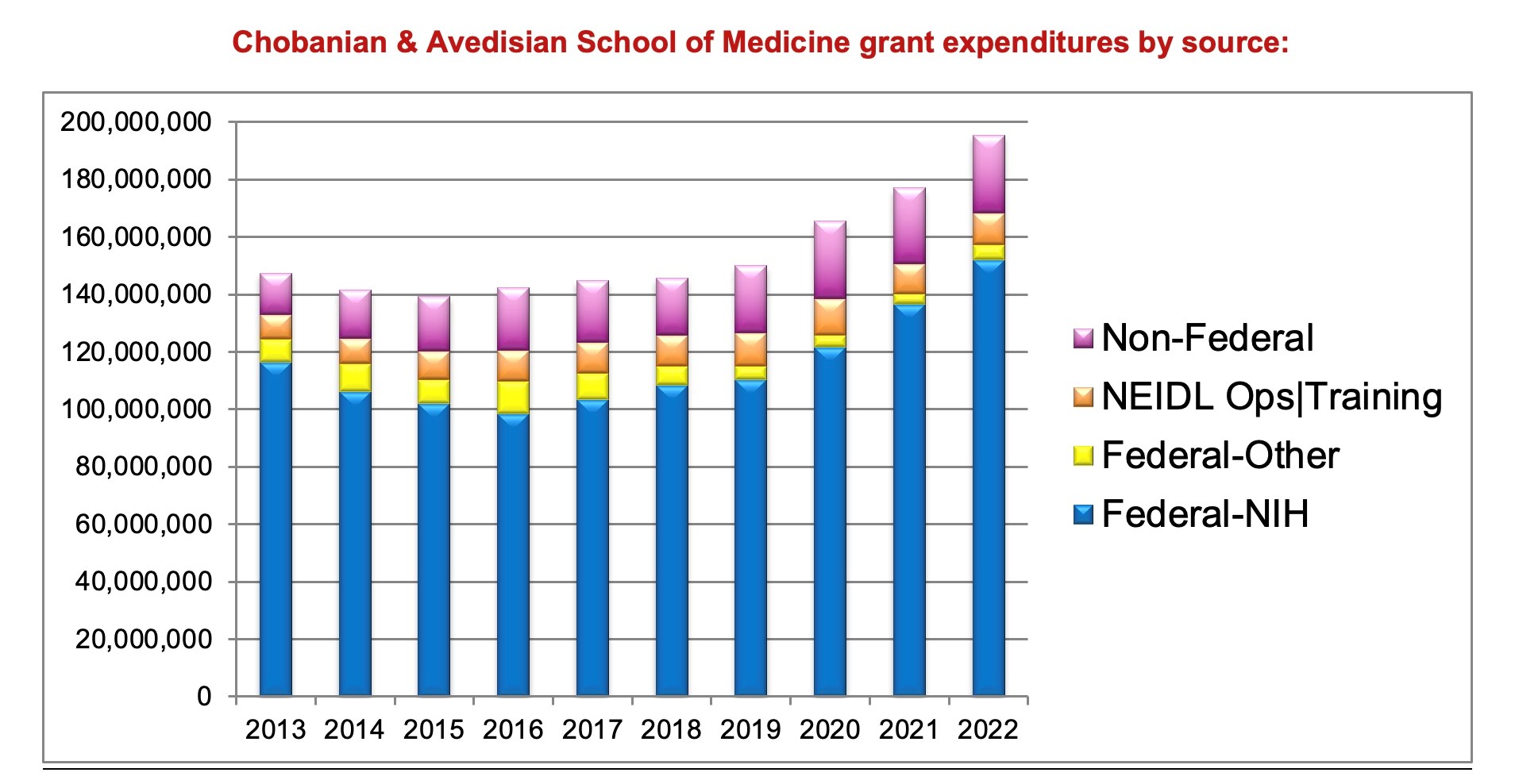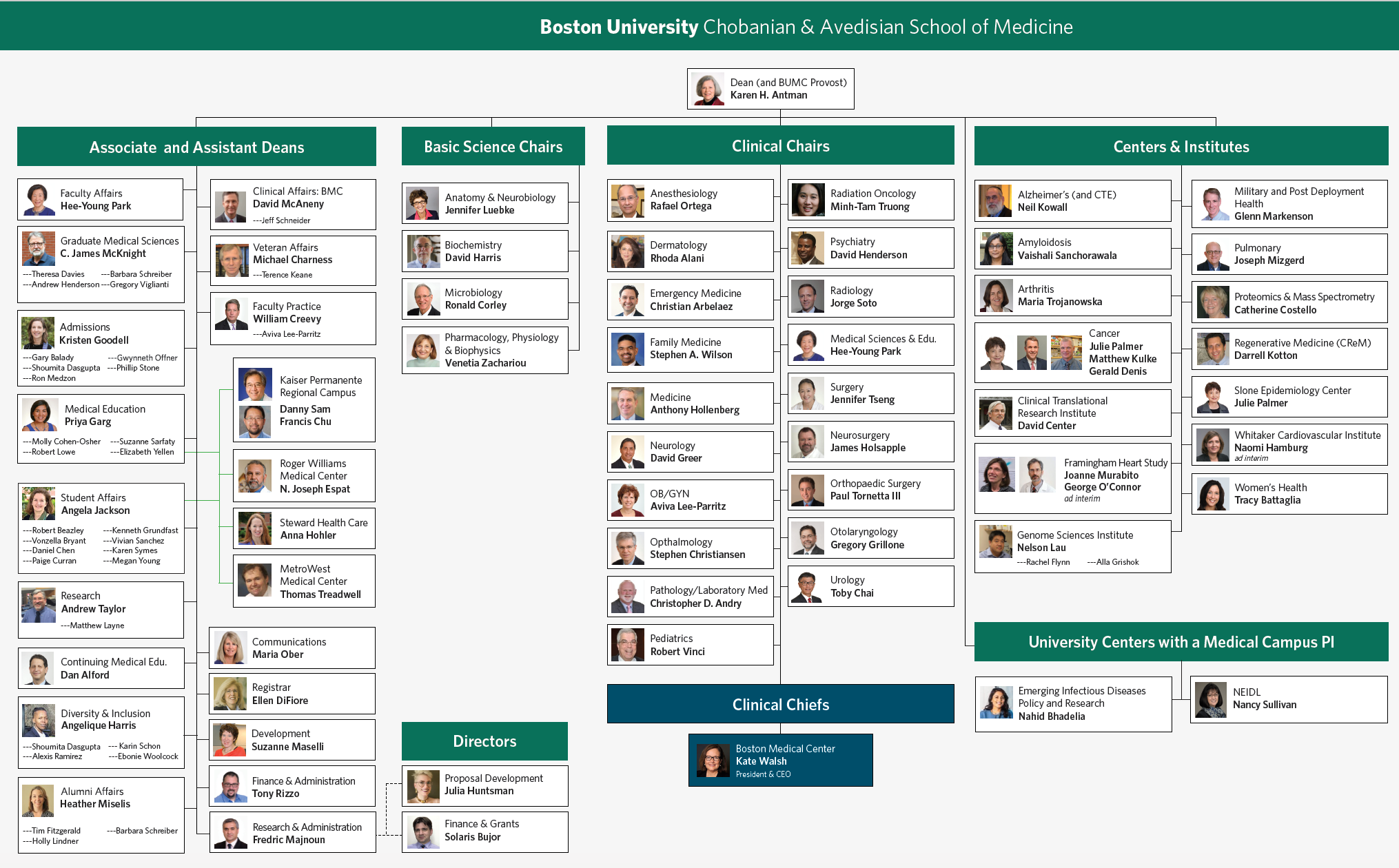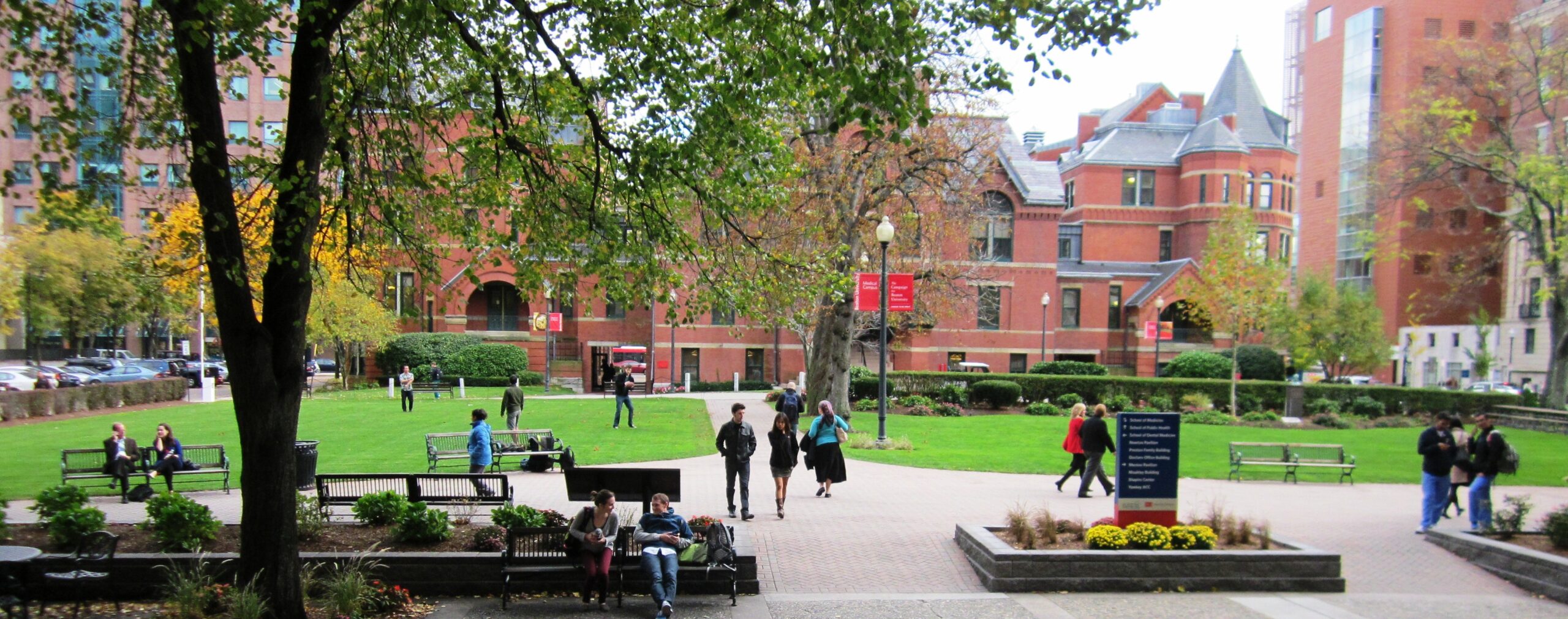Director, Framingham Heart Study Center
Access the PDF
Reporting: Center directors report to the Dean of the School of Medicine
Boston University Website: https://www.bu.edu/about/
School Website: https://www.bumc.bu.edu/camed/
Website: https://www.framinghamheartstudy.org/ https://www.nhlbi.nih.gov/science/framingham-heart-study-fhs
Position Overview and Opportunity
The BU Chobanian & Avedisian School of Medicine seeks an exceptional leader to serve as Director of the Framingham Heart Study Center and Principal Investigator (PI) of the Framingham Heart Study (FHS). The Center includes both lab and office space on the Boston University Medical Campus (BUMC), and office, lab and clinical space in Framingham, Mass.
This position offers candidates the unique opportunity to direct a dynamic research Center and an iconic study through its continued expansion to not only address cardiovascular epidemiology but also many other health related issues such as dementias, osteoporosis, lung disease, kidney disease, nutrition, and lifestyle factors.
The FHS Center Director will be a major institutional leader and must be a passionate advocate for their Center’s staff and faculty. Working with the Dean’s Office, the successful FHS Center Director will expand on an already strong foundation of research excellence to build a nationally and internationally renowned Center, serving as an advocate within the university for its numerous missions.
The successful FHS Center Director must bring vision to drafting the Center’s future, coupled with a leadership style that inspires others. Above all, the FHS Center Director will be a consensus builder and agent for change in an era where the research enterprise is undergoing innovation and transformation nationwide.
Procedure for Candidacy
The Search Committee will begin reviewing candidates immediately and will continue until the position is filled. Applicants should send the following electronically to CAMedDean@bu.edu:
- a letter of interest that highlights the applicant’s vision for the Center and relevant leadership experience,
- an NIH biosketch with research contributions and
- a full curriculum vitae.
Core Responsibilities
- Recruit, hire, and retain outstanding and diverse faculty and
- Support and promote FHS faculty at the university, national, and international
- Lead the Center’s research and education
- Foster a collegial environment within the
- Promote
- Define and implement strategies that expand and strengthen the Center’s substantial research
- Manage the Center’s budget and ensure compliance with grant and institutional
Critical Success Factors
Center leadership will be evaluated annually based on:
- Center growth in research funding and accomplishments when compared with similar Centers nationally and with concurrent changes in the NIH budget.
- Quality of the Center’s educational and research programs for medical, and public health students, postdocs, and fellows.
- Fiscal responsibility (balanced budget).
- Appropriate use of research space resources (F&A/square foot).
- Faculty development within the Center.
- Collaborations with other centers and departments.
- Diversity of students and faculty; commitment to equity for all.
- Center citizenship and service on school committees.
Qualifications
Education
The successful candidate will have earned a PhD, MD, MD/PhD or equivalent and at least 13 years of experience post terminal degree.
Experience
- Demonstrated track record of leadership and management gained within a medical center, research intensive university, or institute.
- Research background in heart, lung, blood epidemiology with expertise in managing large cohort studies and datasets and preferably relevant to cardiovascular/stroke research.
- Strong organizational, financial, and budgetary skills that enable long-term planning towards strategic and tactical Center goals.
- Success in mentoring and developing outstanding talent towards research and academic success.
- A strong record of research accomplishments, productivity, and peer-reviewed extramural funding.
Personal Characteristics
- A clear strategic vision for Center development.
- Demonstrated political acumen to address the needs of diverse stakeholders.
- A collaborative approach and willingness to take an institutional view of goals.
- Excellent communication skills across diverse audiences.
The FHS Study
One of the first long-term cohort studies of its kind, the NIH’s Framingham Heart Study is considered the crown jewel of epidemiology. Since its beginning in 1948, the Framingham Heart Study (FHS), under the direction of the National Heart, Lung, and Blood Institute (NHLBI), has been committed to identifying the common factors or characteristics that contribute to cardiovascular disease (CVD). FHS has followed CVD development over 75 years in three generations of participants and produced more than 3,000 research articles in leading medical journals. Since 1971, Boston University School of Medicine has served as the NHLBI contractor and academic partner for the study. Thanks to FHS, we now know that most cardiovascular disease is caused by modifiable risk factors like smoking, high blood pressure, obesity, high cholesterol levels, diabetes, and physical inactivity.
The Framingham Heart Study continues to make important scientific contributions by enhancing its research capabilities and capitalizing on its inherent resources through use of new diagnostic technologies. While pursuing the Study’s established research goals, the NHLBI and the FHS investigators are expanding their research aims and collaborating with leading researchers from around the country and throughout the world in research areas such as stroke and dementia, osteoporosis and arthritis, nutrition, diabetes, eye diseases, hearing disorders, lung diseases, genetic patterns of common diseases, and more. The study continues with an ambitious research agenda and looks forward to new discoveries in the decades to come.

The FHS Center
The FHS Center includes a highly interactive group of primary and affiliated faculty, staff, and trainees whose research and education focuses on cardiovascular epidemiology but also other health studies such as dementia, nutrition, osteoporosis, lung disease, etc. Our research benefits from state-of-the-art facilities, partnership with NHLBI, and a strong network of collaborations with faculty in other disciplines at BU, as well as national and international collaborations.
Research: The Center includes 12 Boston University research faculty members with total extramural research funding of more than $13M, in the most recent fiscal year. Faculty excel in cardiovascular epidemiology, heart failure, genetics, and genomics (including metabolomics and proteomics), stroke, dementia, cognitive impairment, brain aging, healthy aging, metabolic and lifestyle risk factors including diabetes and glycemia, diet, physical activity, hypertension, dyslipidemia, sleep and mood, lung health and disease including COPD and interstitial lung abnormalities, biostatistics and digital health.
Center faculty are located in newly renovated, office and conference space on the fifth floor of the Instructional building. The floor also houses Alzheimer’s Disease Center faculty, which maintains close ties with FHS faculty.
Research at Boston University Medical Campus is supported by excellent core facilities (BUMC research cores). Our diverse research strengths on campus include the nationally and internationally recognized National Emerging Infectious Diseases Laboratories (NEIDL), Pulmonary Center, Center for Regenerative Medicine, Framingham Heart Study Center, Evans Center for Interdisciplinary Biomedical Research, Center for Aging Research, Chronic Traumatic Encephalopathy Center, and Alzheimer’s Disease Research Center.
In addition, the school, which recently received a $100M endowment to support medical and research excellence, maintains a close relationship with its affiliate, Boston Medical Center (BMC), the northeast’s largest safety net hospital. This relationship further facilitates collaborative research with investigators at the forefront of patient care.
Boston University
Chobanian & Avedisian School of Medicine
https://www.bumc.bu.edu/camed/
Established in 1848, the BU Chobanian & Avedisian School of Medicine, originally named the New England Female Medical College, was the first institution in the US to formally educate women physicians. It became the BU School of Medicine when it became co-educational in 1873. The school graduated the first black American woman physician in the United States, Dr. Rebecca Lee Crumpler in 1864, and the first Native American physician, Dr. Charles Eastman in 1890. The school did not exclude outstanding applicants because of sex or race and has not needed to change the names of any buildings.
Today, the school ranks No. 32 in Best Medical Schools (Research) in the 2023 edition of U.S. News & World Report. The school continues to make critical investments to strengthen its cutting- edge research and capabilities, particularly interdisciplinary approaches to discovery and innovation. A critical success factor in expanding these changes is the recruitment of a new FHS Center Director.
The school, as stated in its mission statement, is dedicated to the educational, intellectual, professional, and personal development of a diverse group of exceptional students, trainees, and faculty who are deeply committed to the study and practice of medicine, to biomedical research, and to public health.
Its values include inclusive excellence, integrity, service, social justice, collegiality, equality of opportunity, and interdisciplinary collaboration.
The school supports all aspects of biomedical research, from basic exploration to outcomes research, with particular emphasis on interdisciplinary translational collaborations between bench and bedside.
We are committed to fostering the development of the next generation of exceptional biomedical scientists currently enrolled in Master’s and PhD programs, as well as medical and dental students.
Compensation and Equal Opportunity
Compensation arrangements are competitive and commensurate with both experience and achievement. Boston University is an equal opportunity employer, and all qualified applicants will receive consideration for employment without regard to race, color, religion, sex, sexual orientation, gender identity, national origin, disability status, protected veteran status, or any other characteristic protected by law.



